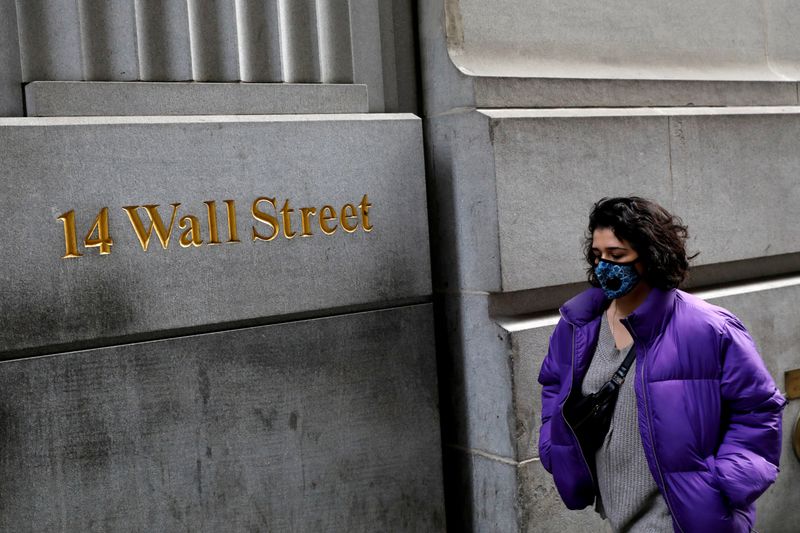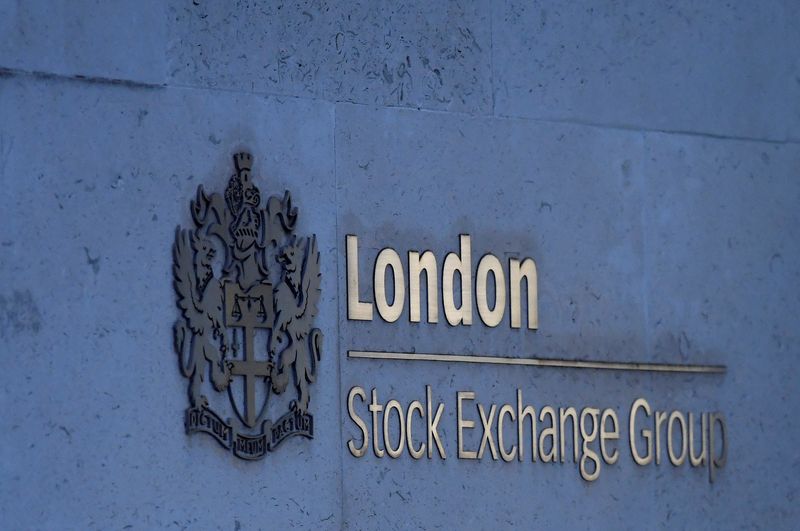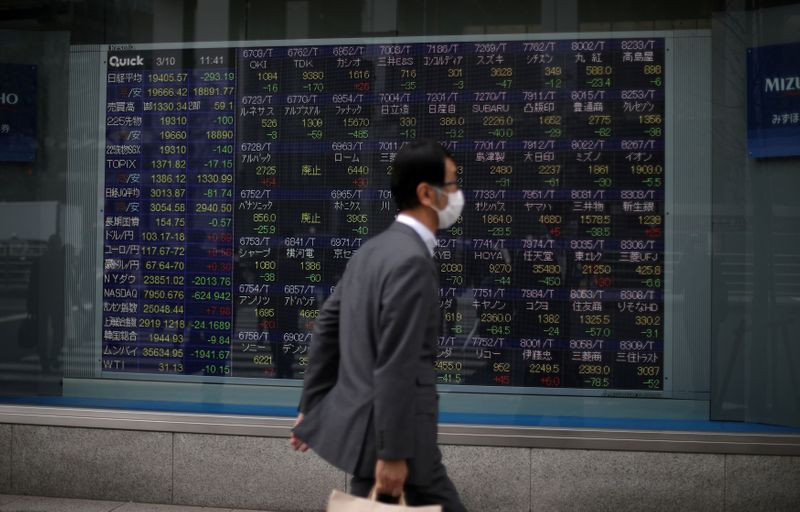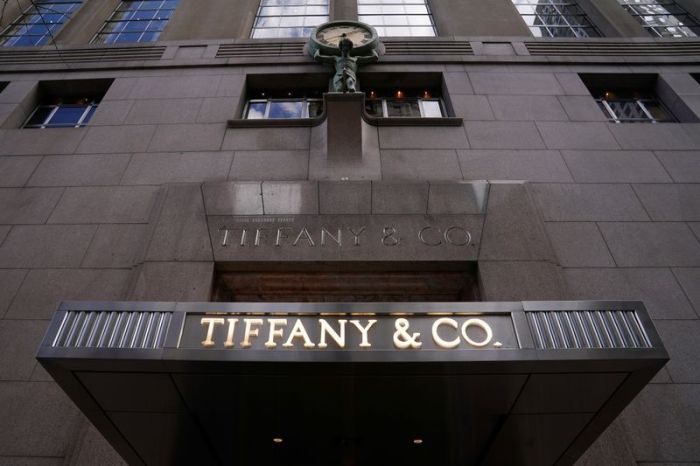NEW YORK (Reuters) – A gauge of world equity markets and the dollar rose on Thursday after the U.S. Federal Reserve said it would roll out an aggressive new strategy that aims to boost employment and allow inflation to run a bit faster for longer than in the past.
Yields gained on longer-dated government bonds as Fed Chair Jerome Powell laid out a policy that aims for 2% inflation on average so that too-low a pace would be followed by an effort to lift inflation “moderately above 2% for some time.”
The Fed also aims to ensure that employment does not fall short of its maximum level, a new approach Powell said reflected an appreciation “that a robust job market can be sustained without causing an unwelcome increase in inflation.”
The dollar rebounded after initially falling and gold prices also flipped in choppy trade, retreating from early gains on Powell’s comments, which investors had widely expected.
“Ultimately, this just means interest rates are going to stay very, very low for even longer than we expected,” said Esty Dwek, head of global market strategy at Natixis Investment Managers in Geneva.
“It’s lower for even longer and the market was pretty much anticipating this,” Dwek said.
Interest rate-sensitive financial stocks <.SPSY> gained on the view that longer-dated rates will rise, or what borrowers pay, and widen the spread with shorter-maturity securities on which banks fund their lending.
“I’m delighted because financials are doing quite well today, they’re leading the charge,” said Andrew Slimmon, a senior portfolio manager at Morgan Stanley Investment Management.
“These financial companies, not just the big banks, they’re reporting very good quarters but their stocks are being priced as if it’s a one-time surge,” Slimmon said.
The dollar index <=USD> rose 0.198% and spot gold prices <XAU=> fell -1.16% to $1,930.85 an ounce. The S&P 500, the Nasdaq and MSCI’s global equity benchmark all set new intraday highs, though the Nasdaq closed lower.
Stocks also rose on news that Abbott Laboratories <ABT.N> won U.S. marketing authorization for a COVID-19 portable antigen test that can deliver results in 15 minutes and will sell for $5. Abbott shares rose 7.9%.
MSCI’s benchmark for global equity markets <.MIWD00000PUS> fell 0.11% to 583.41, while Europe’s broad FTSEurofirst 300 index <.FTEU3> closed down 0.57% at 1,438.26.
On Wall Street, the Dow Jones Industrial Average <.DJI> rose 0.57% and the S&P 500 <.SPX> gained 0.17%. The Nasdaq Composite <.IXIC> dropped 0.34%.
“The market will probably take some time to digest the implications,” said Nancy Davis, chief investment officer at Quadratic Capital Management LLC in Greenwich, Connecticut.
“But I believe that a higher willingness to let inflation run above 2% should hurt long-end bonds and inflation expectations probably should increase,” she said.
Powell’s remarks on achieving full employment, one of the Fed’s dual mandates, came as new data suggested the labor market recovery was stalling as the COVID-19 pandemic drags on and financial aid from the government dries up.
The number of Americans filing new claims for unemployment benefits hovered around 1 million last week, while the U.S. economy suffered its sharpest contraction in at least 73 years in the second quarter, two government entities said.
While the 10-year U.S. Treasury <US10YT=RR> note rose 5.4 basis points to 0.7423%, it remained within a range it has mostly held since March, when the Fed flooded the market with liquidity to drive down market rates.
Safe-haven 10-year German bund <DE10YT=RR> yields rose to their highest since early July at -0.384%.
The euro <EUR=> was last down 0.08% at $1.1820.
U.S. gold futures <GCv1> settled down 1.4% at $1,924.60 an ounce.
Oil prices fell as a massive hurricane in the Gulf of Mexico made landfall in the heart of the U.S. oil industry, forcing oil rigs and refineries to shut down.
Brent crude futures <LCOc1> settled down 55 cents at $45.09 a barrel. U.S. crude futures <CLc1> fell 35 cents to settle at $43.04 a barrel.
(Reporting by Herbert Lash; Editing by Bernadette Baum, Tom Brown and Richard Chang)


























